HSBC 2005 Annual Report Download - page 69
Download and view the complete annual report
Please find page 69 of the 2005 HSBC annual report below. You can navigate through the pages in the report by either clicking on the pages listed below, or by using the keyword search tool below to find specific information within the annual report.-
 1
1 -
 2
2 -
 3
3 -
 4
4 -
 5
5 -
 6
6 -
 7
7 -
 8
8 -
 9
9 -
 10
10 -
 11
11 -
 12
12 -
 13
13 -
 14
14 -
 15
15 -
 16
16 -
 17
17 -
 18
18 -
 19
19 -
 20
20 -
 21
21 -
 22
22 -
 23
23 -
 24
24 -
 25
25 -
 26
26 -
 27
27 -
 28
28 -
 29
29 -
 30
30 -
 31
31 -
 32
32 -
 33
33 -
 34
34 -
 35
35 -
 36
36 -
 37
37 -
 38
38 -
 39
39 -
 40
40 -
 41
41 -
 42
42 -
 43
43 -
 44
44 -
 45
45 -
 46
46 -
 47
47 -
 48
48 -
 49
49 -
 50
50 -
 51
51 -
 52
52 -
 53
53 -
 54
54 -
 55
55 -
 56
56 -
 57
57 -
 58
58 -
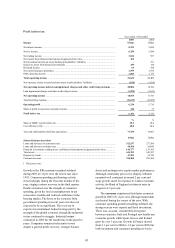 59
59 -
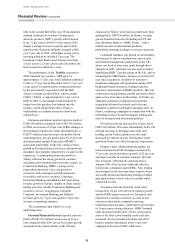 60
60 -
 61
61 -
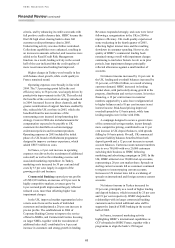 62
62 -
 63
63 -
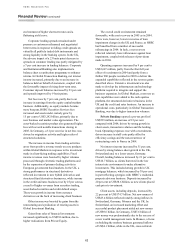 64
64 -
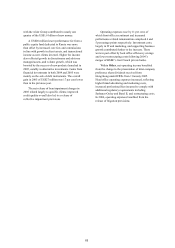 65
65 -
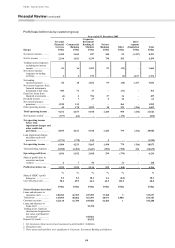 66
66 -
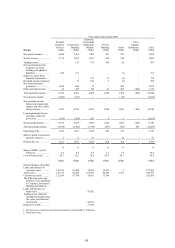 67
67 -
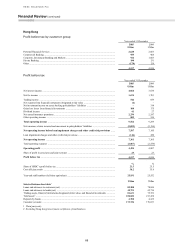 68
68 -
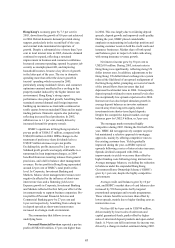 69
69 -
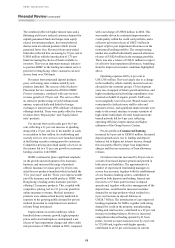 70
70 -
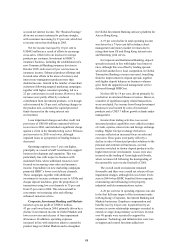 71
71 -
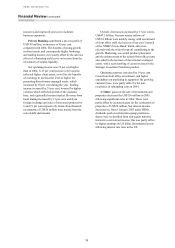 72
72 -
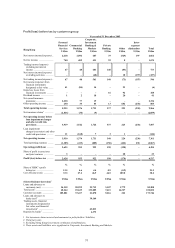 73
73 -
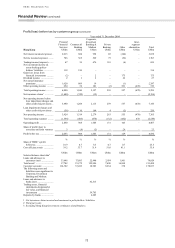 74
74 -
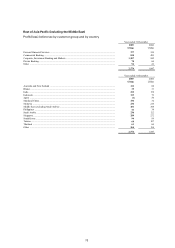 75
75 -
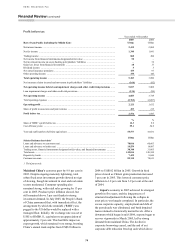 76
76 -
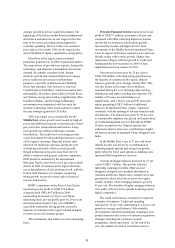 77
77 -
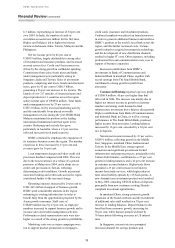 78
78 -
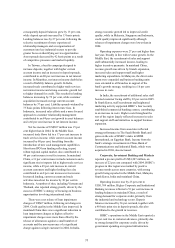 79
79 -
 80
80 -
 81
81 -
 82
82 -
 83
83 -
 84
84 -
 85
85 -
 86
86 -
 87
87 -
 88
88 -
 89
89 -
 90
90 -
 91
91 -
 92
92 -
 93
93 -
 94
94 -
 95
95 -
 96
96 -
 97
97 -
 98
98 -
 99
99 -
 100
100 -
 101
101 -
 102
102 -
 103
103 -
 104
104 -
 105
105 -
 106
106 -
 107
107 -
 108
108 -
 109
109 -
 110
110 -
 111
111 -
 112
112 -
 113
113 -
 114
114 -
 115
115 -
 116
116 -
 117
117 -
 118
118 -
 119
119 -
 120
120 -
 121
121 -
 122
122 -
 123
123 -
 124
124 -
 125
125 -
 126
126 -
 127
127 -
 128
128 -
 129
129 -
 130
130 -
 131
131 -
 132
132 -
 133
133 -
 134
134 -
 135
135 -
 136
136 -
 137
137 -
 138
138 -
 139
139 -
 140
140 -
 141
141 -
 142
142 -
 143
143 -
 144
144 -
 145
145 -
 146
146 -
 147
147 -
 148
148 -
 149
149 -
 150
150 -
 151
151 -
 152
152 -
 153
153 -
 154
154 -
 155
155 -
 156
156 -
 157
157 -
 158
158 -
 159
159 -
 160
160 -
 161
161 -
 162
162 -
 163
163 -
 164
164 -
 165
165 -
 166
166 -
 167
167 -
 168
168 -
 169
169 -
 170
170 -
 171
171 -
 172
172 -
 173
173 -
 174
174 -
 175
175 -
 176
176 -
 177
177 -
 178
178 -
 179
179 -
 180
180 -
 181
181 -
 182
182 -
 183
183 -
 184
184 -
 185
185 -
 186
186 -
 187
187 -
 188
188 -
 189
189 -
 190
190 -
 191
191 -
 192
192 -
 193
193 -
 194
194 -
 195
195 -
 196
196 -
 197
197 -
 198
198 -
 199
199 -
 200
200 -
 201
201 -
 202
202 -
 203
203 -
 204
204 -
 205
205 -
 206
206 -
 207
207 -
 208
208 -
 209
209 -
 210
210 -
 211
211 -
 212
212 -
 213
213 -
 214
214 -
 215
215 -
 216
216 -
 217
217 -
 218
218 -
 219
219 -
 220
220 -
 221
221 -
 222
222 -
 223
223 -
 224
224 -
 225
225 -
 226
226 -
 227
227 -
 228
228 -
 229
229 -
 230
230 -
 231
231 -
 232
232 -
 233
233 -
 234
234 -
 235
235 -
 236
236 -
 237
237 -
 238
238 -
 239
239 -
 240
240 -
 241
241 -
 242
242 -
 243
243 -
 244
244 -
 245
245 -
 246
246 -
 247
247 -
 248
248 -
 249
249 -
 250
250 -
 251
251 -
 252
252 -
 253
253 -
 254
254 -
 255
255 -
 256
256 -
 257
257 -
 258
258 -
 259
259 -
 260
260 -
 261
261 -
 262
262 -
 263
263 -
 264
264 -
 265
265 -
 266
266 -
 267
267 -
 268
268 -
 269
269 -
 270
270 -
 271
271 -
 272
272 -
 273
273 -
 274
274 -
 275
275 -
 276
276 -
 277
277 -
 278
278 -
 279
279 -
 280
280 -
 281
281 -
 282
282 -
 283
283 -
 284
284 -
 285
285 -
 286
286 -
 287
287 -
 288
288 -
 289
289 -
 290
290 -
 291
291 -
 292
292 -
 293
293 -
 294
294 -
 295
295 -
 296
296 -
 297
297 -
 298
298 -
 299
299 -
 300
300 -
 301
301 -
 302
302 -
 303
303 -
 304
304 -
 305
305 -
 306
306 -
 307
307 -
 308
308 -
 309
309 -
 310
310 -
 311
311 -
 312
312 -
 313
313 -
 314
314 -
 315
315 -
 316
316 -
 317
317 -
 318
318 -
 319
319 -
 320
320 -
 321
321 -
 322
322 -
 323
323 -
 324
324 -
 325
325 -
 326
326 -
 327
327 -
 328
328 -
 329
329 -
 330
330 -
 331
331 -
 332
332 -
 333
333 -
 334
334 -
 335
335 -
 336
336 -
 337
337 -
 338
338 -
 339
339 -
 340
340 -
 341
341 -
 342
342 -
 343
343 -
 344
344 -
 345
345 -
 346
346 -
 347
347 -
 348
348 -
 349
349 -
 350
350 -
 351
351 -
 352
352 -
 353
353 -
 354
354 -
 355
355 -
 356
356 -
 357
357 -
 358
358 -
 359
359 -
 360
360 -
 361
361 -
 362
362 -
 363
363 -
 364
364 -
 365
365 -
 366
366 -
 367
367 -
 368
368 -
 369
369 -
 370
370 -
 371
371 -
 372
372 -
 373
373 -
 374
374 -
 375
375 -
 376
376 -
 377
377 -
 378
378 -
 379
379 -
 380
380 -
 381
381 -
 382
382 -
 383
383 -
 384
384 -
 385
385 -
 386
386 -
 387
387 -
 388
388 -
 389
389 -
 390
390 -
 391
391 -
 392
392 -
 393
393 -
 394
394 -
 395
395 -
 396
396 -
 397
397 -
 398
398 -
 399
399 -
 400
400 -
 401
401 -
 402
402 -
 403
403 -
 404
404 -
 405
405 -
 406
406 -
 407
407 -
 408
408 -
 409
409 -
 410
410 -
 411
411 -
 412
412 -
 413
413 -
 414
414 -
 415
415 -
 416
416 -
 417
417 -
 418
418 -
 419
419 -
 420
420 -
 421
421 -
 422
422 -
 423
423 -
 424
424
 |
 |
67
Hong Kong’s economy grew by 7.3 per cent in
2005, down from the growth of 8.6 per cent achieved
in 2004. Robust domestic demand provided strong
support, particularly in the second half of the year,
and external trade maintained its rapid rate of
growth. Despite a substantial rise of more than 3 per
cent in local interest rates in 2005, domestic demand
continued to expand, reflecting a sustained
improvement in business and consumer confidence.
Increased consumer spending, spurred by greater job
security as unemployment fell, and improving
household incomes, became a key driver of growth
in the latter part of the year. The rise in domestic
spending more than offset the slower growth in
tourists’ spending which occurred in 2005,
particularly among mainland visitors, and consumer
optimism remained unaffected by a cooling in the
property market induced by the higher interest rate
environment. Hong Kong’s strong export
performance also propelled growth, benefiting from
sustained external demand and foreign importers
building up inventories as trade talks continued on
textile quotas between mainland China and its major
trading partners. Domestic exports also picked up,
reflecting increased local production. In 2005,
inflation rose to 1.1 per cent, mainly driven by
increased demand for property rentals.
HSBC’s operations in Hong Kong reported a
pre-tax profit of US$4,517 million, compared with
US$4,830 million in 2004. IFRSs changes to the
treatment of preference share dividends led to a
US$387 million decrease in pre-tax profits.
Excluding this, profits increased by 2 per cent.
Subdued profit growth was largely attributable to a
turnaround in loan impairment charges, as 2004
benefited from non-recurring releases from general
provisions, and a fall in balance sheet management
revenues. Pre-tax profits in Hong Kong represented
around 22 per cent of HSBC’s total profit at this
level. In Corporate, Investment Banking and
Markets, balance sheet management revenues were
negatively affected by the influence of short-term
interest rate rises and a flattening yield curve.
Expense growth in Corporate, Investment Banking
and Markets reflected the first full-year effect of the
investment made to support business expansion. Pre-
tax profits of Personal Financial Services and
Commercial Banking grew by 27 per cent and
6 per cent respectively, benefiting from a sharp rise
in deposit spreads as short-term interest rates
increased in a benign credit environment.
The commentary that follows is on an
underlying basis.
Personal Financial Services reported a pre-tax
profit of US$2,628 million, 27 per cent higher than
in 2004. This was largely due to widening deposit
spreads, deposit growth and improved credit quality.
During the year, HSBC placed considerable
emphasis on maintaining its leadership position and
meeting customer needs in both the credit cards and
insurance businesses. Market share of both spend
and balances grew in respect of credit cards along
with strong insurance revenue growth.
Net interest income grew by 30 per cent to
US$2,618 million. During 2005, interest rates in
Hong Kong rose significantly, reflecting rising US
dollar interest rates. In addition, adjustments to the
Hong Kong: US dollar linked exchange rate system
reduced the likelihood of an upward realignment of
the Hong Kong dollar, prompting a reversal of much
of the inward flows from investors that had
depressed local market rates in 2004. Consequently,
deposit spreads widened to more normal levels after
the exceptionally low spreads experienced in 2004.
Interest rate rises also helped stimulate growth in
average deposit balances as investor sentiment
moved away from long-term equity-related
investments into shorter-term liquid deposits.
Despite the competitive deposit market, average
balances grew by US$2.9 billion, or 3 per cent.
The mortgage market remained highly
competitive during 2005. During the first half of the
year, HSBC did not aggressively compete on price
but maintained a selective approach to mortgage
approvals, mainly by offering competitive rates to
the existing customer base. Yields gradually
improved during the year, as HSBC repriced
upwards following a series of interest rates increases.
Spreads declined compared with 2004, as
improvements in yields were more than offset by
higher funding costs following rising interest rates.
Average mortgage balances, excluding the reduction
in balances under the suspended Hong Kong
Government Home Ownership Scheme (‘GHOS’)
grew by 1 per cent, despite the highly competitive
environment.
Average credit card balances grew by 10 per
cent, and HSBC’s market share of card balances also
increased by 550 basis points led by targeted
promotional campaigns and rewards programmes.
These volume benefits were more than offset by
lower spreads, mainly due to higher funding costs as
interest rates rose.
Net fees fell by 6 per cent to US$740 million,
driven mainly by lower sales of unit trusts and
capital guaranteed funds, partly offset by higher
sales of structured deposit products and open-ended
funds. A 34 per cent fall in unit trust fee income was
driven by a change in market sentiment during 2005.
